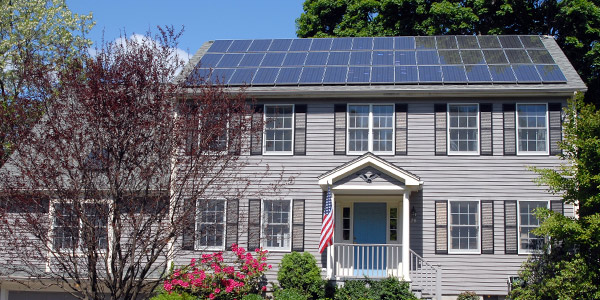The Biden administration is aiming to support the work states are already doing to eliminate harmful emissions by filling in funding gaps and strengthening climate policy, according to White House National Climate Adviser Gina McCarthy.
A major focus will be delivering on Biden’s promise to create jobs in the clean energy industry, McCarthy said during the National Association of State Energy Officials 2021 Energy Policy Outlook Conference on Wednesday.
The federal government can “bring hope again to individual communities, those that have been left behind and those that are worried about this transition” by working with state authorities, McCarthy said.
A lack of leadership at the federal level on addressing climate change during former President Donald Trump’s administration left state governments to create their own alliances and initiatives for sweeping change, most notably the U.S. Climate Alliance. McCarthy said the Biden administration is not seeking to duplicate these efforts, but to “make investments of federal dollars” into those ongoing efforts.
Craig Altemose, executive director of environmental advocacy organization Better Future Project, told RTO Insider that federal funding to support existing state and regional efforts, such as the Renew New England Alliance, will “employ a bunch of people to help solve the climate crisis.”
One of the organization’s top priorities in the upcoming Massachusetts legislative session is to promote the Massachusetts Renews Alliance, which will launch later this month with a goal of coordinating the retrofit of 1 million homes in the state within the next decade.
The group has been a couple years in the making, Altemose said, but the state of Massachusetts alone may not have the financial resources to make it a reality, and the COVID-19 pandemic has further slowed progress. But support from the federal level could help the state achieve its energy goals while offering employment opportunities.
“You can’t take a house, ship it to China, have them retrofit it and ask them to ship it back,” Altemose said. “It needs to be humans from this area.”
McCarthy said the climate targets under the Biden administration will be challenging to meet, but the major transitions “are not anything fundamentally to object to if it [means] better jobs — more jobs — and a stable economy.”
Working with Unions
Commenting during the conference session, attendee Kerry Campbell, manager of the Energy Policy and Technology Deployment Division within the Pennsylvania Department of Environmental Protection, said the office does not have strong engagement from unions on transitioning to clean energy, though unions are critical in the implementation of new climate initiatives.
McCarthy said the administration has started discussions with unions on how to make the transition to clean energy without leaving communities that rely on carbon-emitting industries behind the curve.
“We cannot think that the shift to clean energy is going to mean that people who are working in the coal mines now happily take $9/hour jobs or $10/hour jobs putting solar on roofs,” McCarthy said. Creating high-quality renewable energy jobs at the local level will ensure families who have lived in one place for generations won’t need to move to find employment opportunities, she said.




